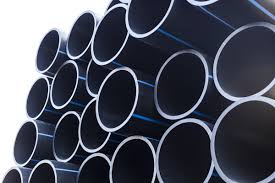Dec . 10, 2024 08:37 Back to list
hdpe sewer pipe products
Understanding HDPE Sewer Pipe Products A Comprehensive Overview
High-Density Polyethylene (HDPE) sewer pipe products have gained significant popularity in the construction and infrastructure sectors due to their exceptional properties and durability. As urban areas expand and sewage systems face increasing demands, the need for reliable and efficient piping solutions has never been greater. This article delves into the characteristics, benefits, applications, and considerations of HDPE sewer pipe products.
What is HDPE?
HDPE, or High-Density Polyethylene, is a thermoplastic polymer made from petroleum. Known for its high strength-to-density ratio, HDPE is a versatile material used in a wide range of applications, including packaging, plastic bottles, and, importantly, sewer pipes. The production of HDPE involves a process called polymerization, which creates long chains of molecules, contributing to its toughness and flexibility.
Characteristics of HDPE Sewer Pipes
1. Durability and Longevity HDPE pipes are highly resistant to corrosion, chemicals, and environmental stressors. This durability allows them to maintain structural integrity over time, often lasting for 50 years or more under the right conditions.
2. Lightweight and Flexible Compared to traditional materials like concrete or metal, HDPE is lightweight, which simplifies handling and installation. Its flexibility allows it to bend without breaking, making it ideal for use in various terrains and conditions.
3. Cost-Effective While the initial cost of HDPE may be higher than some alternatives, its longevity, low maintenance requirements, and ease of installation often lead to lower overall project costs. Additionally, the reduced need for additional support structures in trenchless applications can save time and money.
4. Smooth Interior Finish HDPE pipes have a smooth surface that promotes efficient flow and reduces the risk of clogs and blockages. The reduced friction also allows for lower energy consumption during fluid transport.
5. Environmental Resistance HDPE is resistant to biological growth, preventing the development of roots that can penetrate and obstruct traditional piping systems. Its resistance to many chemical substances ensures that it can handle a variety of waste materials without degradation.
Applications of HDPE Sewer Pipes
hdpe sewer pipe products

HDPE sewer pipes are widely used in a variety of applications
- Sewage and Wastewater Management These pipes are commonly used in municipal sewage systems, where they transport waste safely and efficiently. - Stormwater Drainage HDPE's superior flexibility and strength make it suitable for handling stormwater runoff, helping to prevent flooding in urban areas.
- Industrial Applications Many industries, including chemical manufacturing and oil refineries, utilize HDPE pipes for transporting hazardous and non-hazardous substances
.- Trenchless Installation HDPE is ideal for trenchless construction methods, such as horizontal directional drilling (HDD) and pipe bursting, which minimize surface disruption and speed up installation.
Installation Considerations
While HDPE offers numerous benefits, the installation process should be approached with care
- Qualified Personnel It’s essential to have trained professionals for installation to ensure compliance with local regulations and standards, which might vary across regions.
- Proper Jointing Techniques HDPE pipes can be joined through various methods, including fusion welding and mechanical fittings. The quality of joints is critical to mitigate leakage risks.
- Soil and Environmental Evaluation Understanding the soil conditions and environmental factors can influence the selection of pipe diameter, wall thickness, and depth of installation.
Conclusion
HDPE sewer pipe products represent a significant advancement in underground piping technology, offering durability, flexibility, and cost-effectiveness. As cities continue to grapple with the challenges of increasing waste and aging infrastructure, HDPE pipes provide a reliable solution that meets modern demands. Their versatility across various applications highlights their importance in both municipal and industrial sectors. By understanding the characteristics, benefits, and installation considerations of HDPE sewer pipes, stakeholders can make informed decisions that promote sustainability and efficiency in waste management systems. As we move towards a more environmentally conscious future, HDPE piping will undoubtedly play a crucial role in shaping the landscape of urban infrastructure.
-
High-Quality PVC Borehole Pipes Durable & Versatile Pipe Solutions
NewsJul.08,2025
-
High-Quality PVC Perforated Pipes for Efficient Drainage Leading Manufacturers & Factories
NewsJul.08,2025
-
High-Quality PVC Borehole Pipes Durable Pipe Solutions by Leading Manufacturer
NewsJul.08,2025
-
High-Quality PVC Borehole Pipes Reliable PVC Pipe Manufacturer Solutions
NewsJul.07,2025
-
High-Quality UPVC Drain Pipes Durable HDPE & Drain Pipe Solutions
NewsJul.07,2025
-
High-Quality Conduit Pipes & HDPE Conduit Fittings Manufacturer Reliable Factory Supply
NewsJul.06,2025

